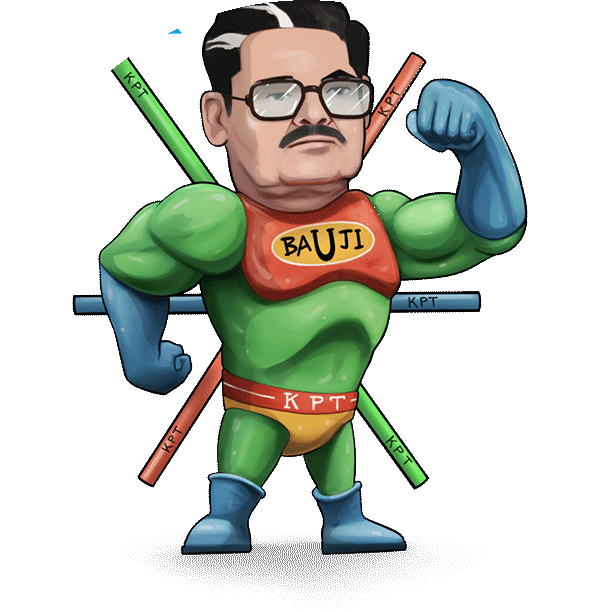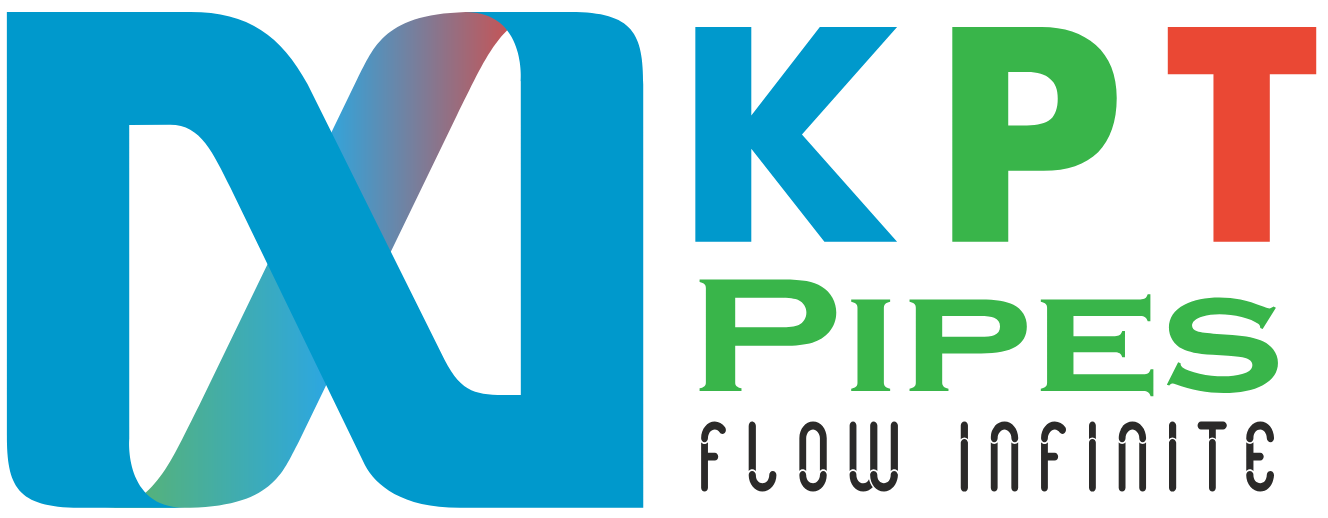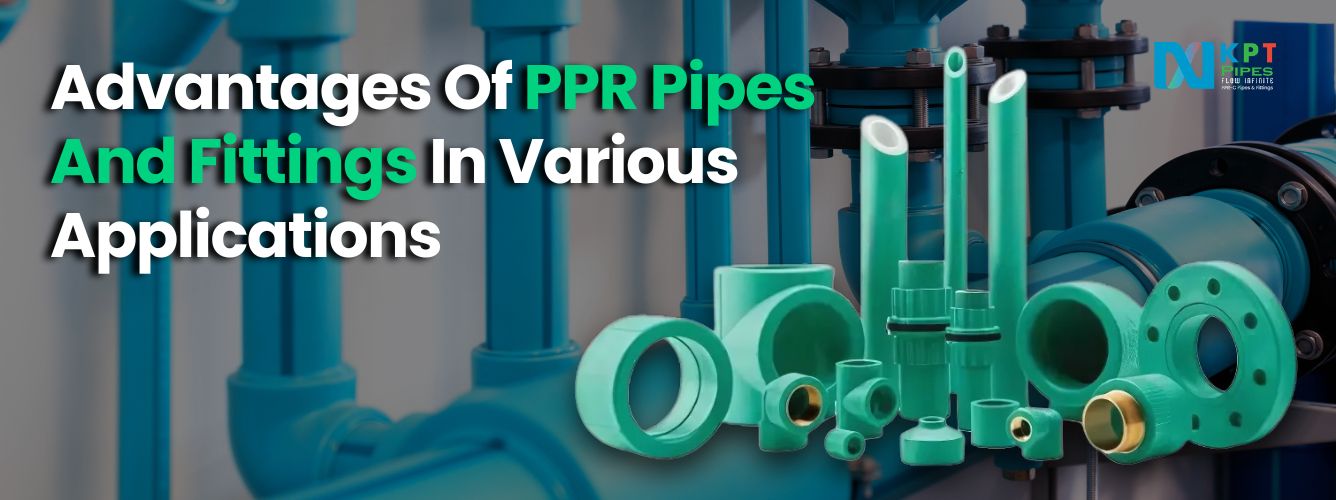In today’s plumbing and construction environment, random copolymer (PPR) polypropylene pipe and fittings are quickly becoming the material of choice for residential, commercial, and industrial applications. Known for its durability, high-temperature resistance, and environmental friendliness, PPR pipes offer significant advantages over traditional materials such as copper, galvanized steel, and PVC. This blog dives into the unique Advantages of PPR pipes and fittings and their adaptability across industries, highlighting why PPR has earned its place as the piping solution of choice.
Table of Contents
ToggleKey Advantages of PPR Pipes and Fittings
PPR pipes and fittings are transforming modern plumbing systems with their durability, efficiency, and cost-effectiveness. Known for their exceptional properties, they offer superior performance in both residential and industrial applications. Here are the key Advantages of PPR Pipes and Fittings that make them a preferred choice:
1. Exceptional Durability and Longevity
One of the main advantages of PPR pipes is their long service life, which can exceed 50 years under optimal conditions. Made of durable polypropylene material, these pipes are resistant to corrosion, scaling and sediment build-up, which are common problems with metal pipes. This durability translates into a cost-effective, low-maintenance solution ideal for both residential and industrial applications.
2. High-Temperature and Pressure Resistance
PPR pipes have excellent resistance to high temperatures, making them suitable for both hot and cold water systems. They can withstand temperatures up to 95°C and maintain structural integrity under high pressure, ensuring reliable performance in a variety of environments. In industrial environments where high-temperature fluids are often required, PPR pipes provide a safe and efficient solution.
3. Eco-Friendly and Recyclable
Since environmental sustainability is becoming more and more important, PPR pipes excel in their environmental friendliness. They are non-toxic and do not leach harmful chemicals, making them safe to transport drinking water. In addition, PPR pipes are fully recyclable and their production process has a low impact on the environment compared to metal pipes, which require more energy to produce.
4. Thermal Insulation and Energy Efficiency
The material properties of PPR offer excellent thermal insulation and reduce heat loss in hot water systems. This insulation helps conserve energy, leading to lower energy costs in residential and industrial environments. In addition, the low thermal conductivity of PPR pipes minimizes condensation on cold water pipes, providing additional safety and efficiency.
5. Corrosion and Chemical Resistance
Unlike metal pipes, PPR pipes are highly resistant to corrosion and are not affected by most chemicals, acids and alkalis. This resistance is especially valuable in industrial applications where pipes may come into contact with chemicals. Corrosion resistance also means that PPR pipes maintain their structural integrity over time, reducing the need for frequent replacements or repairs.
6. Noise Reduction and Vibration Dampening
PPR pipes have sound-deadening properties that help reduce the noise caused by water flow. This makes them an ideal choice for multi-storey residential buildings and offices, where noise reduction is important to maintain a comfortable environment. In addition, they can absorb vibrations better than metal pipes, further minimizing noise in water systems.
7. Cost-Effective Installation and Maintenance
PPR pipes are light and easy to transport, making installation more affordable. They also use a fusion welding technique that creates a seamless joint, reducing the likelihood of leaks and further simplifying maintenance. This fusion welding process creates a monolithic system where the joints are as strong as the pipe itself, eliminating potential weak points.
8. Safe for Drinking Water
The non-toxic nature of PPR pipes makes them safe for transporting potable water. Unlike some materials that can leach harmful chemicals over time, PPR pipes do not release any impurities, ensuring water purity and safety. This feature makes PPR pipes popular in residential and commercial buildings where water quality is paramount.
Diverse Applications of PPR Pipes and Fittings
PPR pipes and fittings are highly versatile and are used across a range of industries due to their excellent durability, corrosion resistance, and ability to withstand high temperatures and pressures. Here are some key applications:
Residential Plumbing Systems
In households, PPR pipes are widely used for hot and cold water distribution due to their resistance to temperature fluctuations and durability. Easy installation and low maintenance make them an ideal choice for long-term home installation, reducing repair costs and giving homeowners peace of mind.
Commercial Plumbing
Office buildings, shopping complexes and hotels benefit from the use of PPR pipes, especially in areas requiring extensive plumbing work. The soundproofing properties of PPR pipes contribute to a quieter environment, while their strength and reliability ensure the continuous operation necessary to maintain customer satisfaction in commercial spaces.
Industrial Applications
Industries rely on PPR pipes to transport high-temperature and high-pressure liquids and chemicals. Chemical plants, food processing units, and pharmaceutical facilities benefit from PPR’s resistance to corrosion and chemicals, allowing these pipes to safely transport a variety of substances without degradation.
HVAC Systems
Heating, ventilation and air conditioning (HVAC) systems require ductwork that can handle temperature changes and prevent heat loss. PPR pipes are commonly used in HVAC systems due to their thermal insulation properties that ensure efficient management of temperature changes and minimization of energy costs.
Agricultural and Irrigation Systems
PPR pipes are suitable for agriculture and irrigation due to their robustness and resistance to chemicals commonly used in agriculture. Their resistance to corrosion and ability to transport water under high pressure over long distances make them ideal for irrigation systems that ensure sustainable water use in agriculture.
Medical and Pharmaceutical Applications
The non-toxic and corrosion-resistant nature of PPR pipes makes them safe for sensitive applications in the medical and pharmaceutical sectors. They are used to transport purified water and other sterile liquids, ensuring the highest standards of hygiene and safety.
Firefighting Systems
PPR pipes are increasingly used in firefighting systems due to their ability to withstand high-pressure conditions. Their heat resistance also ensures reliable performance in emergency situations and provides an additional layer of safety in buildings and industrial facilities.
Reasons to Select KPT Pipes for PPR Pipes and Fittings.
At KPT Pipes, we understand the diverse requirements across the residential, commercial, and industrial sectors. Therefore, our range of PPR pipes and fittings are manufactured to meet international standards, ensuring the highest quality and reliability. Here’s why you can rely on KPT Pipes:
- Quality Assurance: Firstly, we follow strict quality control measures to ensure that our PPR pipes and fittings are defect-free and meet all required specifications. This guarantees a dependable product that meets your needs.
- Innovative Solutions: Additionally, our range includes specialised PPR options such as UV and fire-resistant PPR pipes, designed for specific applications. This allows you to choose the right solution for unique requirements.
- Sustainability Commitment: Moreover, at KPT Pipes, we prioritize environmentally friendly manufacturing practices and produce recyclable products to support sustainable construction. We believe in contributing to a greener future.
- Wide Product Range: Finally, from domestic plumbing to industrial pipes, KPT Pipes offers a comprehensive range of PPR solutions to meet various application needs. This versatility ensures that we have the right product for every project.
Conclusion
The Advantages of PPR pipes and fittings have revolutionised the plumbing industry, offering unrivalled benefits in a variety of applications. From residential installations to industrial systems, their durability, environmental friendliness, and efficiency make them the ideal choice for modern piping needs. KPT Pipes prides itself on providing a range of high-quality, sustainable PPR solutions to suit a wide range of applications and ensure reliability and safety for years to come.
FAQs
Q1.Why are PPR pipes better for plumbing than traditional metal pipes?
Ans: PPR pipes offer a number of advantages over metal pipes, including corrosion resistance, high temperature and pressure tolerance, noise reduction and ease of installation. Unlike metal pipes, they do not corrode or settle, making them more durable and low maintenance for both residential and industrial installations.
Q2.Are PPR pipes suitable for hot water systems?
Ans: Yes, PPR pipes are very suitable for hot water systems as they can withstand temperatures up to 95°C without losing structural integrity. Their thermal insulation properties also help retain heat, making them effective for use in domestic and industrial hot water applications.
Q3.How do PPR pipes benefit the environment?
Ans: PPR pipes are an environmentally friendly choice as they are fully recyclable and non-toxic, meaning they do not leach harmful chemicals into the water. In addition, their energy-efficient thermal insulation properties reduce the need for excessive energy consumption, contributing to a more sustainable and green plumbing solution.



